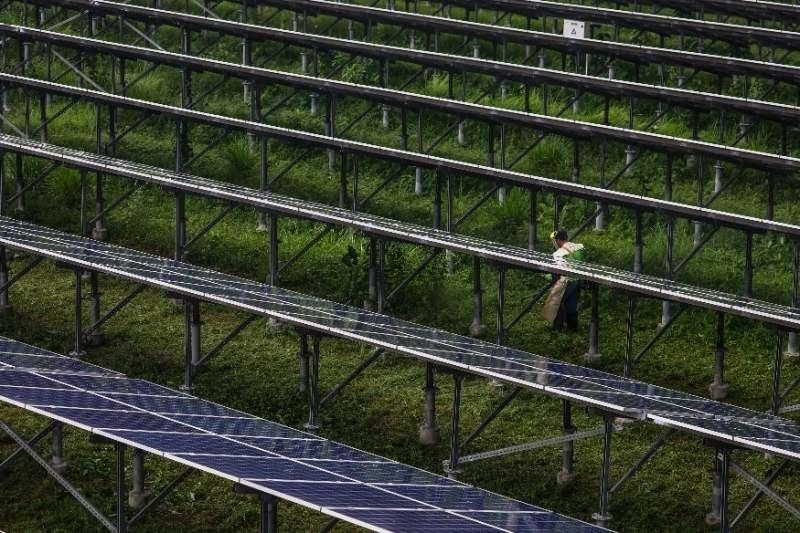Power plant woes spark call for clean energy shift

MANILA, Philippines — Climate and energy advocates ramped up calls for a shift away from “expensive and unreliable” fossil fuels in the wake of recent power plant outages and capacity reductions.
The National Grid Corp. of the Philippines on Tuesday placed the Luzon grid on red and yellow alerts, and the Visayas grid on yellow alert after dozens of power plants either went offline or operated at reduced capacity, prompting President Ferdinand Marcos Jr. to direct government offices to “set the standard” in conserving energy.
Power for People Coalition (P4P) convenor Gerry Arances said the recent power woes were caused by the country’s “continued addiction to fossil fuels and the government’s refusal to heed civil society’s pleas to properly prepare for El Niño.”
The power generation in the Philippines heavily relies on fossil fuels such as coal and gas. The country generates 60% of its electricity from burning coal, a major contributor to planet-warming emissions and linked to respiratory and cardiovascular diseases.
“The government needs to wake up and get with the program: fossil fuel dependence leads to costly and undependable energy. The long-term solution is obvious to anyone not blinded by fumes from fossil fuels: transitioning to renewable energy is the only solution,” Arances said.
Only 22% of the energy mix comes from renewables. The Department of Energy (DOE) targets to increase the share of clean energy to 35% by 2030 and 50% by 2040.
A 2023 report by Berlin-based Climate Analytics said it is “entirely feasible” for the Philippines to end its reliance on coal and gas in favor of renewable energy sources by 2050, which can reduce electricity costs and create around one million jobs.
While the Marcos administration says it is aggressively pursuing a transition to renewable energy, the country is also increasing the reliance on imported natural gas for power generation
“With these outages, the case to phase out fossil fuels has never been stronger. It is not the time for distractions like fossil gas (liquefied natural gas), which is just as dirty, costly, and deadly as coal,” the Philippine Movement for Climate Justice (PMCJ) said.
‘Consumers suffer’
PMCJ said that while frequent power outages disrupt consumers and jeopardize the economy, power companies get mere slaps on the wrist.
“Power surges from poorly managed rotational brownouts also further increase the bills consumers pay for. Yet power generators get away with continuous forced outages and are even moving to lighten penalties on said outages,” the group said.
According to think tank Institute for Climate and Sustainable Cities (ICSC), the Luzon power grid might face a tight power supply in May, resulting in yellow alerts, as El Niño threatens the country's power sufficiency.
ICSC senior policy advisor Pedro Maniego said the persistent problem of power supply shortages highlights the vulnerability of the current centralized and baseload-reliant grid system. He urged the government to prioritize flexibility and distributed generation in energy policy-making and planning.
“The transition will enable greater integration of renewable, indigenous, and clean energy into the grid, thus ensuring a resilient, dependable and sustainable electricity supply for consumers,” Maniego said.
- Latest





























